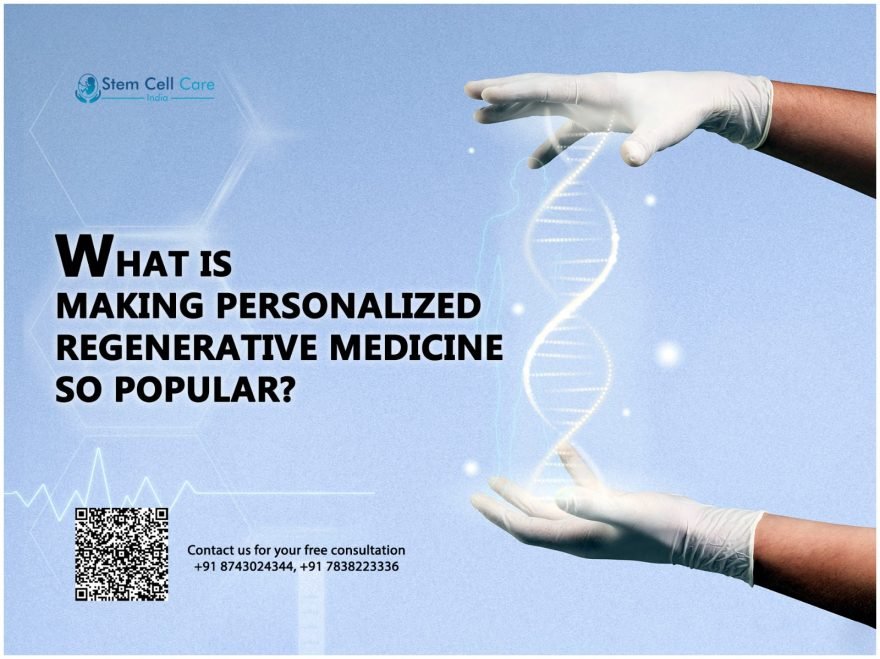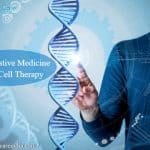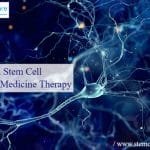Table of Contents
Personalized regenerative medicine is gaining importance in recent times because it treats patients according to their individual needs. This method emphasizes the use of the body’s inherent healing characteristics to mend tissues and organs that suffer damage. A lot of this field is dependent on stem cell therapy in India, which facilitates regeneration and the restoration of functions lost because of disease or injury.
Unlike traditional treatments, personalized regenerative medicine considers a patient’s unique genetic and medical profile, leading to better outcomes. With advancements in biotechnology, doctors can now provide more effective and targeted therapies. As more people seek long-term solutions, the demand for personalized regenerative medicine continues to grow.
Why Stem Cell Therapy is The Best Regenerative Medicines?
Stem cell therapy is one of the most effective regenerative medicines. It uses the body’s own cells to repair and regenerate damaged tissues. Here’s why it is the best option:
- Natural Healing Process – Stem cells promote natural healing by replacing damaged or diseased cells with healthy ones, reducing the need for drugs or surgeries.
- Versatile treatment – They come in many kinds of cells so that it’s useful in repairing nerve damage, joint pain and organ repair
- Minimally invasive – A procedure not done through an opening in the patient’s body that is compared with surgery which gives more risk compared to invasive techniques and much faster recovery.
- Reduce pain and inflammation – These have the effect on reducing chronic pains and inflammation; they can enhance the functions while repairing tissues in the body.
- Lower Risk of Rejection – Since most of the stem cell treatments in India are autologous, that is, using the patient’s own cells, the risk of immune rejection is very low.
- Potential to Treat Incurable Diseases – Research is ongoing to use stem cells for conditions like Parkinson’s disease, spinal cord injuries, and diabetes, offering hope for better treatments in the future.
Stem cell therapy is a promising solution for patients looking for safe, effective, and long-lasting treatment. Its ability to heal the body naturally makes it the best regenerative medicine available today.
What Disease Stem Cell Therapy Can Treat?
The benefit of stem cell therapy in India is a kind of modern treatment that makes repairing and regeneration of damaged tissues in the body possible. It is now used in the case of different diseases, even terrible and long-standing ones. Scientists and doctors are researching stem cells to find new ways of treating many health problems. Some of these diseases include:
- Neurodisorders: Diseases such as Parkinson’s disease, Alzheimer’s disease, and spinal cord injuries may be treated using stem cell therapy. It repairs nerve cells and improves brain functions.
- Organ-Specific Diseases: Liver disease, heart disease, and kidney failure may be treated using stem cells to regenerate damaged organ tissues.
- Infertility: Some research has shown that stem cell therapy may help men and women facing infertility by regenerating reproductive cells.
- Eye Disorders: Possibly treating diseases, damage to the optic nerves and old people losing eyesight due to failure of eyes repair.
- Orthopedic Conditions: Injury, degeneration and arthrosis at joints. Osteobones break and fail to form completely. Bone defects can be created and can self-repair under influence of Stem cell therapy which regenerates cartilage or bone tissues inside human bodies
- Diabetes: Possibility is the re-development of Insulin-producing cells at pancreas could treat type-1 and 2 Diabetes conditions.
- Aging and Degeneration: Stem cell therapy is studied for anti-aging treatments as it can help improve skin health, repair tissues, and slow down aging-related conditions.
Concluding Remarks
The increasing trend of personalized regenerative medicine is due to the potential of stem cell treatment in India. It offers targeted healing from a patient’s own stem cells, reduces the danger of rejection, and speeds up recovery time. Its ability to address various conditions, from chronic diseases, contributed to the popularity and promising approach in modern medicine.







